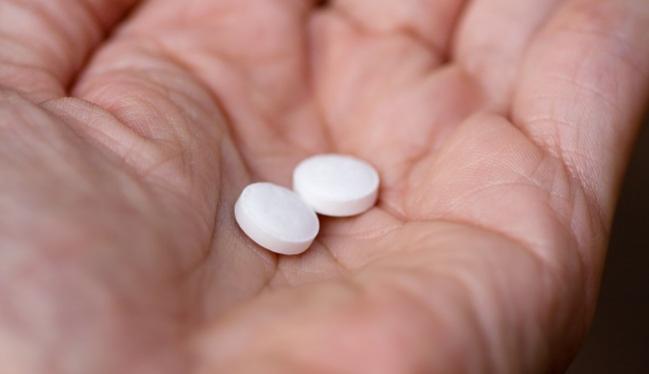More Excess Bleeding and No Benefit With Triple Therapy After PCI, Meta-analysis Finds
Patients seem to fare better with double therapy that includes an anticoagulant and P2Y12 inhibitor and leaves off aspirin.

Interventional cardiologists are often faced with the dilemma of what to do when patients who require chronic oral anticoagulation also need to undergo PCI, and a new meta-analysis suggests that using double therapy—with an anticoagulant and a P2Y12 inhibitor—is the way to go.
Compared with use of two agents, triple therapy—which adds aspirin—was associated with a higher rate of major bleeding in a pooled analysis of observational and randomized studies (6.6% vs 3.8%; RR 1.54; 95% CI 1.20-1.98), lead author Nayan Agarwal, MD (University of Florida, Gainesville), and colleagues report in their paper published ahead of print in the American Journal of Medicine.
That excess risk was not accompanied by a reduction in the risk of thromboembolic or ischemic events.
The findings suggest that for patients with an indication for long-term anticoagulation and a need for PCI “we can safely use a dual therapy regimen, which will be one anticoagulant and one antiplatelet, and preferably the antiplatelet should be a P2Y12 inhibitor, instead of using triple therapy,” Agarwal told TCTMD.
Patients who would typically be considered for triple therapy are generally older, he pointed out, and in this population even minor bleeds can result in discontinuation of antiplatelet or anticoagulant therapy, which in turn increases risks of stroke, MI, and other adverse events. “So it is all the more important that we do our best to avoid even the smaller, nuisance bleeds in them,” Agarwal said. “This shift over to dual therapy instead of triple therapy will be very, very beneficial in the future.”
The researchers point out that 20% to 30% of patients with an indication for oral anticoagulation also have ischemic heart disease, potentially setting up the need for stenting, which is typically followed by dual antiplatelet therapy with aspirin and a P2Y12 inhibitor. Thus, many of these patients would be candidates for triple therapy.
However, there is accumulating evidence that triple therapy increases bleeding without adding any additional benefit in terms of improving clinical outcomes. In the WOEST trial, for instance, triple therapy with warfarin, aspirin, and clopidogrel increased total TIMI bleeding and actually led to a higher rate of stroke, death, MI, stent thrombosis, or TVR compared with warfarin plus clopidogrel. The PIONEER AF-PCI trial also showed that leaving off aspirin reduces bleeding in anticoagulated patients undergoing PCI.
To explore triple versus double therapy in a more comprehensive way, Agarwal et al performed a meta-analysis that included 7,276 patients from nine observational studies, as well as WOEST and PIONEER AF-PCI. The most common indication for anticoagulation was atrial fibrillation or flutter.
The only outcome that differed between the two groups during a mean follow-up of 10.8 months was major bleeding, which was higher with triple therapy. Other clinical outcomes, including all-cause mortality, MACE, thromboembolic events, MI, stent thrombosis, and TVR, occurred at similar rates with double and triple therapy.
C. Michael Gibson, MD (Beth Israel Deaconess Medical Center, Boston, MA), principal investigator of PIONEER AF-PCI, told TCTMD in an email: “Although this study has the limitation of combining both observational and randomized data, it does suggest across a broad group of patients and real-world practice patterns that there is no excess risk of ischemic events with single antiplatelet therapy [combined with an oral anticoagulant] as opposed to triple therapy.”
The latest guidance out of Europe and the United States addresses concerns surrounding the excess bleeding seen with triple therapy by recommending shorter durations of treatment, but that advice is based largely on observational studies, Agarwal et al note.
They say that ongoing trials like RE-DUAL PCI and AUGUSTUS, which are evaluating the use of non-vitamin K antagonist oral anticoagulants (NOACs) in this setting, will provide more information to help clarify the most appropriate way to treat these patients.
Todd Neale is the Associate News Editor for TCTMD and a Senior Medical Journalist. He got his start in journalism at …
Read Full BioSources
Agarwal N, Jain A, Mahmoud AN, et al. Safety and efficacy of dual versus triple antithrombotic therapy in patients undergoing percutaneous coronary intervention. Am J Med. 2017;Epub ahead of print.
Disclosures
- Agarwal reports no relevant conflicts of interest.


Comments